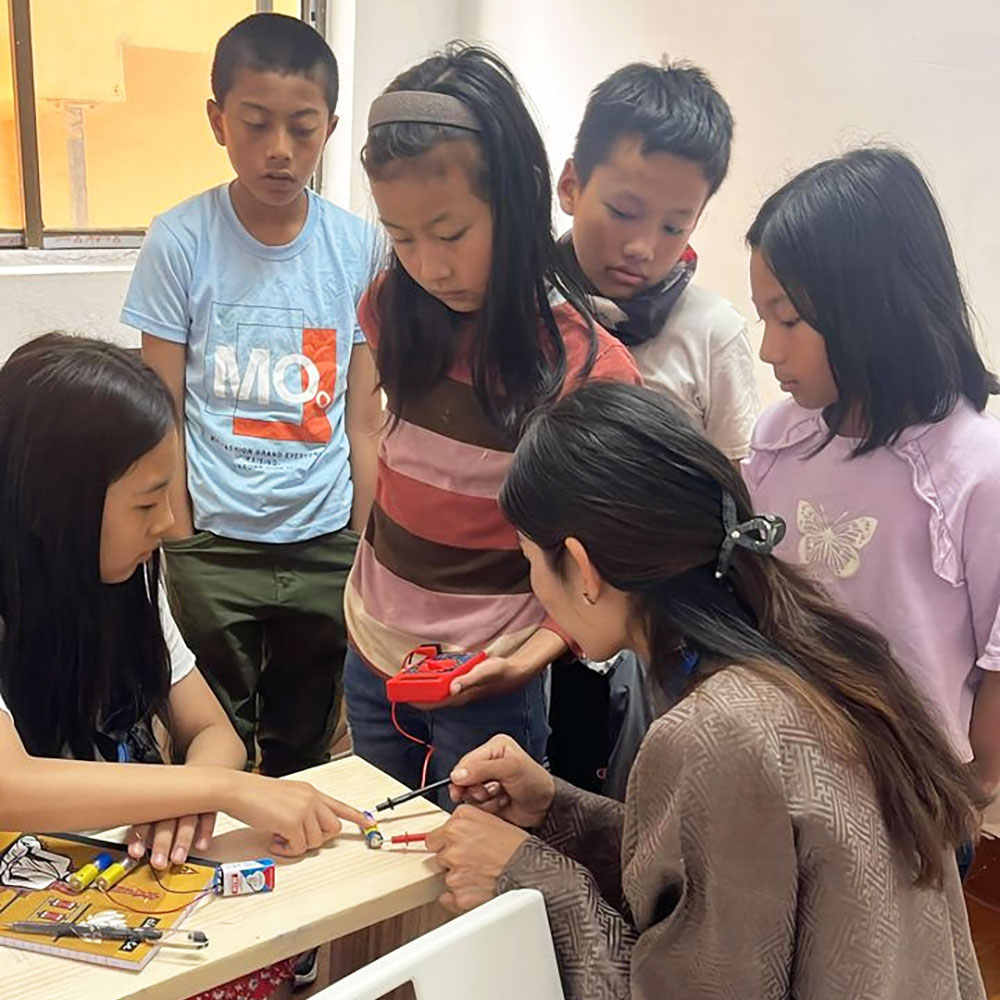Sherab Lhamo
Seven students from Thimphu’s Robotics & IoT Training Institute (RITI) will showcase their innovative projects at the Bhutan Innovation Forum between October 1 and 3.
Internet of Things(IoT) is integration of sensors and other technologies to collect and transmit data over the internet.
The founder of RITI, Pelden, said that the students pitched numerous ideas and decided to develop a smart bridge and a voice device for those who cannot speak.
The team will develop a smart bridge system prototype using sensors to measure vehicle weight before crossing a bridge. If a vehicle exceeds the weight limit, a gate will activate to restrict access, preventing potential structural damage, said a team member, Jimmy Kuendrol Yeozer.
The team is creating a prototype of a voice device to assist individuals with speech and hearing challenges. The device will enable communication of basic needs and messages such as “help”, “food”, “bathroom”, and more.
Pelden said that the institute’s primary goal is to extend IoT and robotics training across the country, helping students develop innovative ideas that contribute to society.
“STEM for all, equitable opportunity for all,” he said.
RITI offers an eight-month course depending on the classes you take per week. Students attending three times a week can complete the course in eight months, while those attending once a week may need more time. The curriculum includes five modules: electronics fundamentals, STEM starter, sensor application, IoT, and robotics. Within each module, students are expected to complete around 70 hands-on projects.
Pelden said that the tuition fee for students attending classes three times a week is Nu 2,950, while those attending once a week pay Nu 1,500.
He added that robotics training fosters creativity, problem-solving, and digital literacy in students.
By designing and building robots, students learn to identify problems, brainstorm solutions, and persevere through challenges, thereby developing essential skills for the digital age.
Pelden acknowledged the challenges faced as the first robotics institute in the country. Despite strong interest from children, logistics, such as arranging pick-up and drop-off, securing investments, and sourcing raw materials, pose difficulties. The need to order materials online, which can take time, adds to the challenges.
Jimmy Kuendrol Yeozer, a Class IV student, said that through the training, he learned to build a grass cutter using a motor, a 9-volt battery, and a sharpener blade.
He said that his plan was to create a nurse robot capable of distributing medicine to patient. He was inspired by observing how tired nurses in hospitals could potentially administer the wrong medication.
Another student, Tshewang Zangmo Tshogyal, a Class V student, said that her curiosity about robotics led her to enrol in the institute. She has since learned about various components, such as sensors, capacitors (devices that store energy in the form of an electric charge), resistors, and more.
A parent, Richen Khandu, emphasised the importance of encouraging and supporting children when they show interest in technology.
“In today’s world, if you don’t know how to use technology, you are at a significant disadvantage,” he said.


